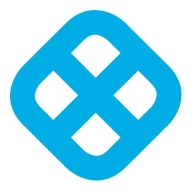

SonarQube Server and Harness are products in the code quality analysis and software delivery automation category. Harness has the upper hand in deployment flexibility and automation capabilities, while SonarQube Server is ahead in code analysis.
Features: SonarQube Server provides comprehensive code quality assessment, seamlessly integrates with development workflows, and aids in continuous inspection and technical debt assessment. Harness offers sophisticated CI/CD functionalities, automated rollbacks, and deployment verification.
Ease of Deployment and Customer Service: SonarQube Server provides on-premises deployment, comprehensive documentation, and community-backed support. Harness offers both on-premises and cloud deployments with responsive customer service, aiding in addressing deployment challenges effectively.
Pricing and ROI: SonarQube Server's lower setup cost is due to its open-source nature, offering effective expense management. Harness, while more costly, provides substantial ROI by reducing deployment time and resource usage, translating into operational savings and increased efficiency.


Harness offers a comprehensive toolset for automating deployment processes and enhancing software update efficiency. It's lauded for its CI/CD capabilities, feature flagging, and real-time deployment monitoring. Key features include an intuitive UI, secret management, and robust rollback functionalities, all contributing to improved productivity and reduced errors in DevOps environments.
SonarQube Server enhances code quality and security via static code analysis. It detects vulnerabilities, improves standards, and reduces technical debt, integrating into CI/CD pipelines.
SonarQube Server is a comprehensive tool for enhancing code quality and security. It offers static code analysis to identify vulnerabilities, improve coding standards, and reduce technical debt. By integrating into CI/CD pipelines, it provides automated checks for adherence to best practices. Organizations use it for code inspection, security testing, and compliance, ensuring development environments with better maintainability and fewer issues.
What are the key features of SonarQube Server?Many industries implement SonarQube Server to uphold coding standards, maintain security protocols, and streamline their software development lifecycle. In sectors like finance and healthcare, adhering to regulations and ensuring reliable software is critical, making SonarQube Server invaluable. It is often integrated into CI/CD pipelines, ensuring that code changes meet set standards before deployment. This approach enhances productivity and maintains compliance with industry-specific requirements.
We monitor all Static Application Security Testing (SAST) reviews to prevent fraudulent reviews and keep review quality high. We do not post reviews by company employees or direct competitors. We validate each review for authenticity via cross-reference with LinkedIn, and personal follow-up with the reviewer when necessary.